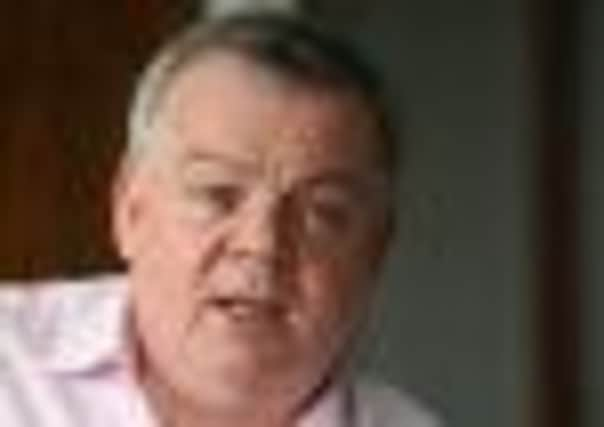Dallat: “Fracking scares the living daylights out of people”


Last week, the Sentinel exclusively revealed that a firm surveying portions of the Roe Valley were looking for shale gas and coal-bed methane as far back as 2005.
Shale gas and coal-bed methane are generally obtained in commercially viable quantities by ‘fracking’, otherwise known as ‘hydraulic fracturing’ - a potentially dangerous procedure for the extraction of hard-to-obtain natural gas which involves pumping vast quantities of water, chemicals and sand deep below the earth to force gas through ‘fractures’ and into wells for extraction.
Advertisement
Hide AdAdvertisement
Hide AdEast Londonderry MLA John Dallat said at Stormont recently that “fracking scares the living daylights out of people” during a debate on the health risks associated with hydraulic fracturing.
The firm surveying much of the Limavady Borough for oil and gas told the Sentinel: “It is too early for us or anyone to speculate with any authority on the possible outcomes of the exploration
program at this stage.”
Meanwhile, MLAs have been debating the potential health risks associated with hydraulic fracturing, particularly the “claims by the Canadian doctor, Dr Eilish Cleary.”
Environment Minister Alex Attwood had been asked about the issue by Assembly Member Mitchell McLaughlin.
Advertisement
Hide AdAdvertisement
Hide AdMr Attwood replied: “I am aware of the evidence of Dr Eilish Cleary from Canada. Indeed, I think that there is wider evidence from Canada that can help to inform the debate on fracking and whether it should or should not happen. I have read some of Dr Cleary’s views, and it seems to me that they are a checklist from the Canadian point of view not just on public health but on the range of concerns and considerations that might be associated with the proposal for fracking. Let me reassure the House and the people of Fermanagh and elsewhere that a health assessment would be integral to any environmental impact assessment, which would be required in the event that a planning application or applications were received for hydraulic fracturing in any part of Northern Ireland.”
Local MLAs also contributed in the debate. Gregory Cambell asked: “The question asks for the Minister’s assessment of one particular individual from Canada. Will he assure people across Northern Ireland that he will have an open mind to any benefits that might be derived as a result of fracking, in addition to any possible, however minuscule, health concerns?”
The Minister replied: “She may be one individual, but she is the Chief Medical Officer of Health in New Brunswick in Canada. Therefore, she clearly speaks with a level of authority.” He added: “Although I, as a member of my own party, have a view on the proposal of fracking, as a Minister, I have to step back.”
John Dallat also took part in the debate, asking: “I thank the Minister for his answers so far. I have listened carefully to what he has said, and he will agree that the negative publicity given to fracking scares the living daylights out of people. To clear the air, can the Minister give us an assurance that until there is absolute scientific proof that fracking is not dangerous, no planning approval will be given?”
Advertisement
Hide AdAdvertisement
Hide AdMr Attwood replied: “The reassurance that I will certainly give to the Member, the House and the citizens of Northern Ireland is that it is only after exhaustive interrogation of the science that any sensible Minister, Government or Assembly, wherever it might be, should make a judgement.
“It would be an aspiration to have absolute scientific assurance, but the nature of science is that it is not absolute.
“Very often, science can lead to conclusions one way or the other. My view is simply this: whatever about the view that I hold as a member of my party, if the science does not lead to the conclusion that this can be done safely, the wise counsel, I think, is that people have to reflect on whether it should be done at all.”